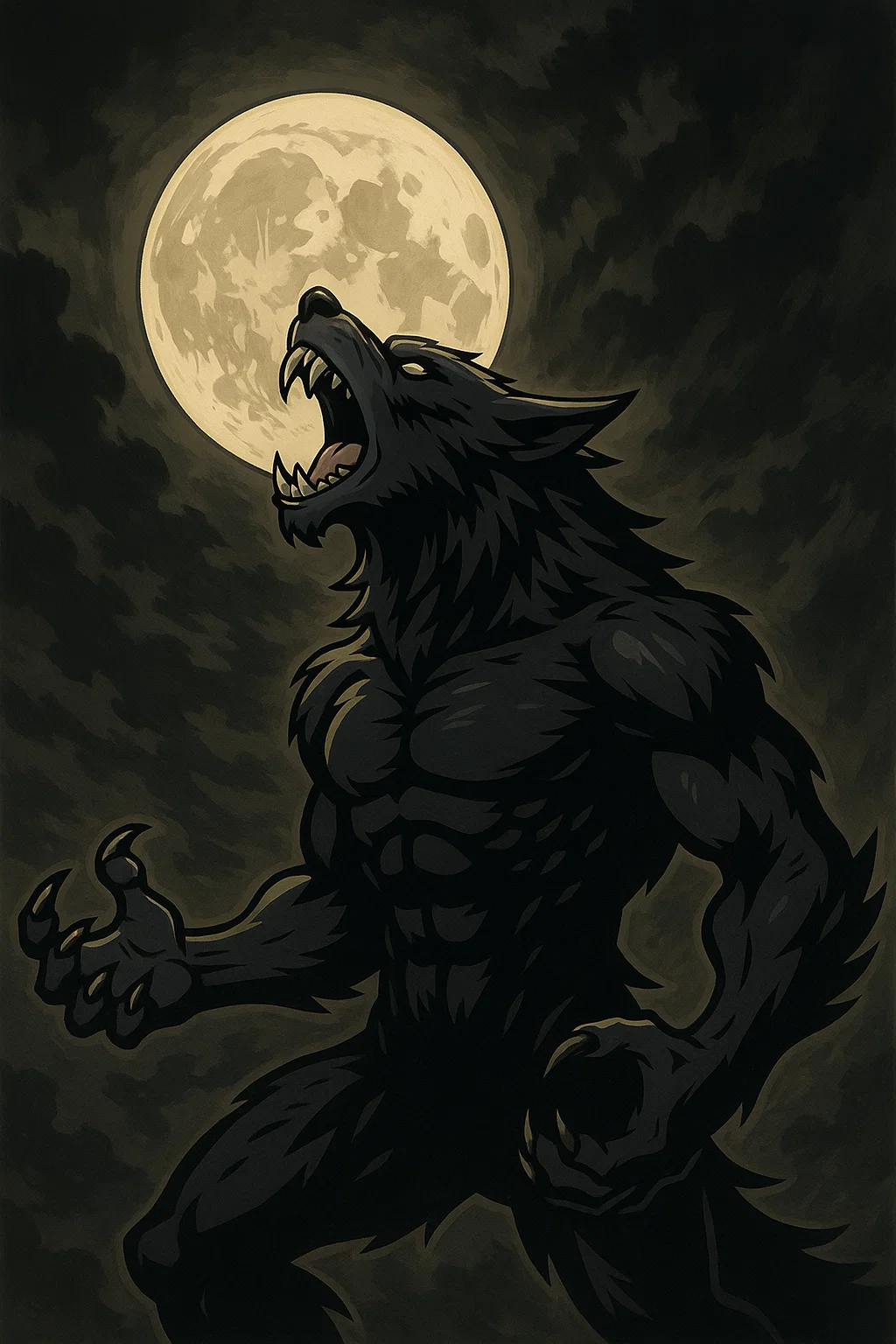The Shadow of the Moon
 Dr. Ian Carrington was at the forefront of a radical school of thought in anthropology, one that balanced between modern science and the remnants of humanity's darker myths. His fieldwork had led him deep into forgotten corners of ancient texts, where stories of lycanthropy—the transformation of humans into wolves—had once been regarded as superstition.
"But now, in the context of a world ruled by capitalism and the relentless pursuit of genetic manipulation, the idea of transforming human biology into something monstrous was no longer fiction."
Dr. Ian Carrington was at the forefront of a radical school of thought in anthropology, one that balanced between modern science and the remnants of humanity's darker myths. His fieldwork had led him deep into forgotten corners of ancient texts, where stories of lycanthropy—the transformation of humans into wolves—had once been regarded as superstition.
"But now, in the context of a world ruled by capitalism and the relentless pursuit of genetic manipulation, the idea of transforming human biology into something monstrous was no longer fiction."
His colleagues in the anthropology department at the prestigious Everly University had long dismissed his theories as eccentric, but Carrington had stumbled upon something extraordinary in his research:
"The connection between anthropoids—the human-like creatures that inhabited the evolutionary tree—and the myth of the werewolf."
In his most recent publication, he had written about how the genetic predisposition for lycanthropy could lie dormant in the human genome, a vestige of pre-historic ancestors who had once lived as apex predators in a world full of monsters.
"What was once seen as a curse might actually be a latent form of anthropoid instinct—a return to a primal, untapped state."
But it was not just academia that was beginning to take interest in Carrington’s research. A shadowy corporate entity, Selene Dynamics, had been watching his work for months.
"The company, which had recently profited immensely from bioengineering and genetic research, saw an opportunity to profit from Carrington’s findings."
One evening, Carrington was summoned to a private meeting with Selene’s executives. The sleek, sterile conference room was filled with sharp suits and hollow smiles. Selene Dynamics wanted more than just research—they wanted control over the transformation.
"They wanted to decapitate any opposition and monopolize the market for genetically enhanced soldiers."
Carrington knew what this meant: they weren’t asking for scientific discovery; they were demanding a monster. A tool. An instrument of war. He could feel the weight of the decision bearing down on him.
"If he refused, his career would be over. And yet, if he complied, he would be complicit in creating something horrific."
“I won’t be a part of this,” Carrington replied, his voice steady, though his heart raced.
"This is not science, Finch. This is exploitation."
Finch's lips curled into a misanthropic smile.
“Do you really think you have a choice? In a world like this, where capitalism dictates everything, you’ll either capitulate to us, or we’ll take it from you. All it takes is one phone call, one tweet, and your career is done."
Carrington could feel the weight of Finch’s words. But the more he thought about it, the more he realized that his research, his lifelong pursuit, had been tainted by these corporate vultures.
"They saw human evolution as a product to be sold. They had no respect for humanity's complex history, its pain, or its potential."
Leaving the meeting, Carrington was filled with both dread and a strange sense of liberation.
"He could see the implications of what Selene Dynamics had planned—a world where human identity was sold off piece by piece, where the essence of being human could be stripped away for the sake of power."
The decision came in a wave of clarity. Carrington quickly reached out to a group of colleagues in the underground academic community—scientists, anthropologists, and activists who still believed in the true purpose of discovery.
“Together, they began developing a countermeasure. They would decapitate Selene’s influence in the scientific community, exposing their plans and ensuring that Carrington’s research was seen for what it truly was: an exploration of human potential, not a tool of war.”
But as Carrington continued his work, he began to notice strange developments among those who had experimented with lycanthropy.
“There were whispers of people—innocent civilians—who had begun to display signs of the condition, their bodies inexplicably shifting when the full moon rose."
Carrington's initial fascination with lycanthropy as a biological anomaly now became a haunting reality.
"It was no longer a scientific curiosity—it was the beginning of something far larger than he had anticipated."
In a world driven by capitalism, where the boundaries of science were being pushed for profit, it seemed like the world was on the brink of an evolutionary shift.
"Carrington wondered whether humanity would be able to hold onto its humanity—or whether it was already too late."
 Dr. Ian Carrington was at the forefront of a radical school of thought in anthropology, one that balanced between modern science and the remnants of humanity's darker myths. His fieldwork had led him deep into forgotten corners of ancient texts, where stories of lycanthropy—the transformation of humans into wolves—had once been regarded as superstition.
"But now, in the context of a world ruled by capitalism and the relentless pursuit of genetic manipulation, the idea of transforming human biology into something monstrous was no longer fiction."
Dr. Ian Carrington was at the forefront of a radical school of thought in anthropology, one that balanced between modern science and the remnants of humanity's darker myths. His fieldwork had led him deep into forgotten corners of ancient texts, where stories of lycanthropy—the transformation of humans into wolves—had once been regarded as superstition.
"But now, in the context of a world ruled by capitalism and the relentless pursuit of genetic manipulation, the idea of transforming human biology into something monstrous was no longer fiction."